932736
4,4′,4′′-Tris(N-(naphthalen-2-yl)-N-phenyl-amino)-triphenylamine
≥99% (HPLC)
Synonym(s):
DPTPCz, Host
About This Item
Recommended Products
grade
sublimed grade
Quality Level
Assay
≥99% (HPLC)
transition temp
transition temp 86 °C (Tg)
solubility
2-methyltetrahydrofuran: soluble
ethyl acetate: soluble
λmax
305 nm±5 nm in ethyl acetate
353 nm±5 nm in ethyl acetate
fluorescence
λem 416 nm±10 nm in ethyl acetate
Orbital energy
HOMO 5.7 eV
LUMO 2.8 eV
SMILES string
[n]2(c3c(c7c2cccc7)cc(cc3)c4nc(nc(n4)c6ccccc6)c5ccccc5)c1ccccc1
InChI
1S/C33H22N4/c1-4-12-23(13-5-1)31-34-32(24-14-6-2-7-15-24)36-33(35-31)25-20-21-30-28(22-25)27-18-10-11-19-29(27)37(30)26-16-8-3-9-17-26/h1-22H
Looking for similar products? Visit Product Comparison Guide
Application
Storage Class Code
11 - Combustible Solids
WGK
WGK 3
Flash Point(F)
Not applicable
Flash Point(C)
Not applicable
Choose from one of the most recent versions:
Certificates of Analysis (COA)
Sorry, we don't have COAs for this product available online at this time.
If you need assistance, please contact Customer Support.
Already Own This Product?
Find documentation for the products that you have recently purchased in the Document Library.
Our team of scientists has experience in all areas of research including Life Science, Material Science, Chemical Synthesis, Chromatography, Analytical and many others.
Contact Technical Service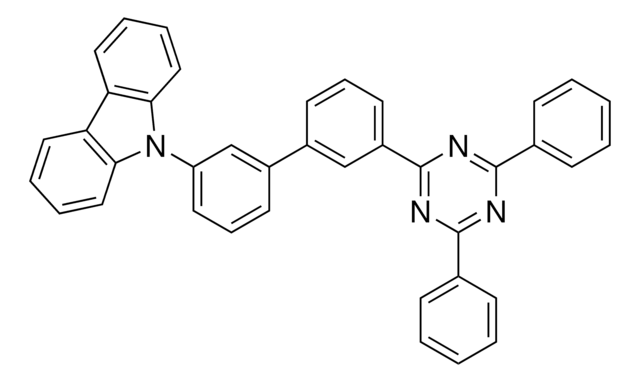
![Tris[2-(p-tolyl)pyridine]iridium(III) ≥99% (HPLC)](/deepweb/assets/sigmaaldrich/product/structures/207/957/bb807380-3690-46c2-809e-e6bc2ba29fa5/640/bb807380-3690-46c2-809e-e6bc2ba29fa5.png)
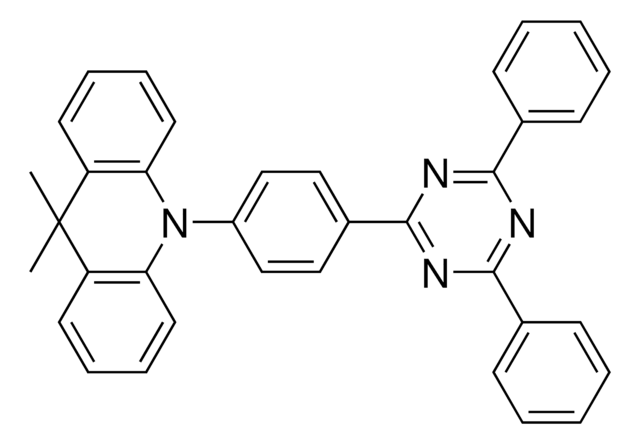
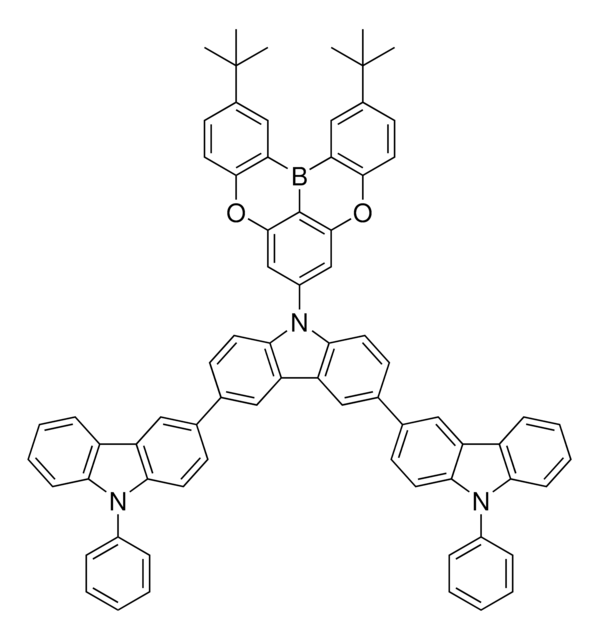
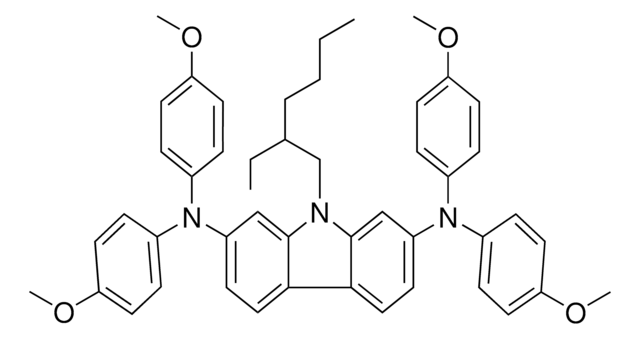
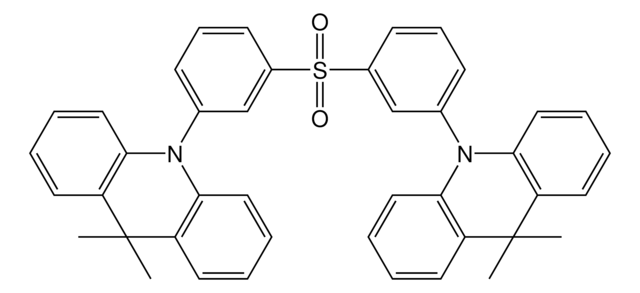
![Tris[2-(4,6-difluorophenyl)pyridinato-C2,N]iridium(III) 96%](/deepweb/assets/sigmaaldrich/product/structures/299/364/88650481-ef29-49a1-a324-7b3e305d12be/640/88650481-ef29-49a1-a324-7b3e305d12be.png)

iridium(III) 97%](/deepweb/assets/sigmaaldrich/product/structures/309/053/0823f035-245c-433d-b033-2eca2d931c67/640/0823f035-245c-433d-b033-2eca2d931c67.png)
